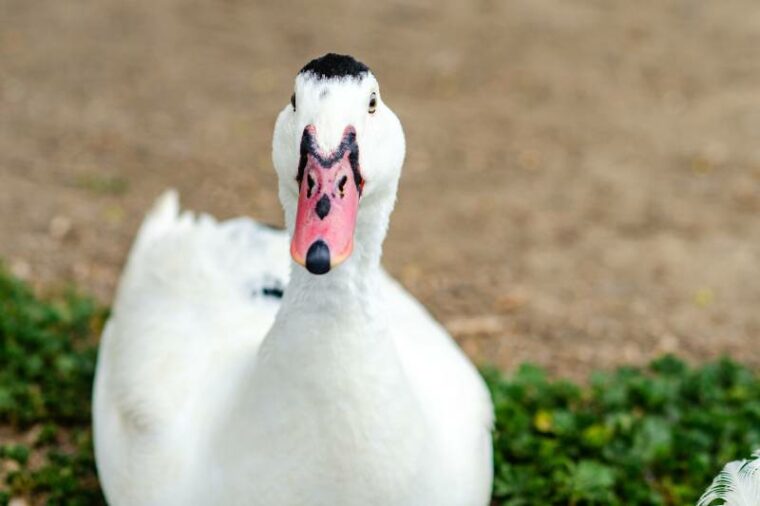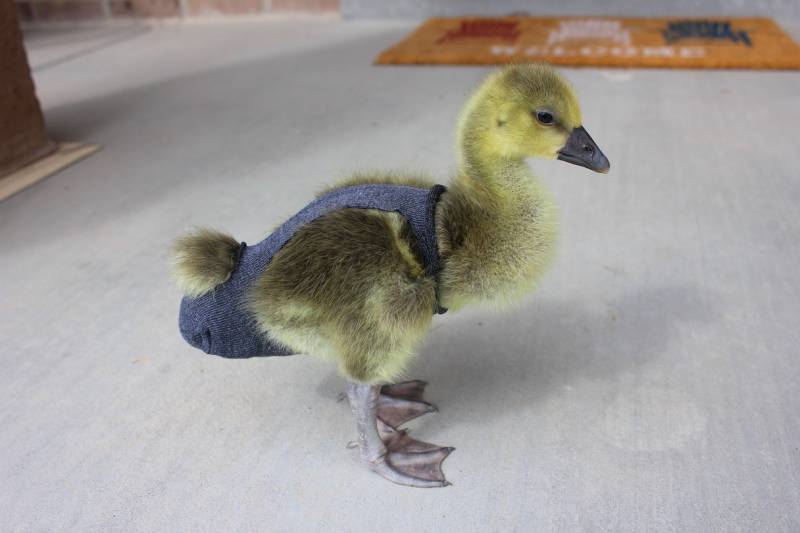
The charm of ducks is undeniable. From their adorable waddling walk to their entertaining antics in the water, they’ve captured the hearts of many animal lovers. But does this fascination translate well into keeping them as pets? This comprehensive guide will delve into the pros and cons of having a duck as a pet.
The 10 Pros of Having a Duck as a Pet
1. Ducks Are Very Hardy

One of the most notable characteristics of ducks is their hardiness. These creatures are remarkably robust, able to adapt to a range of climates and environments with ease. Whether they find themselves in chilly temperatures or warmer climates, ducks manage to thrive. This resilience extends to their diet as well. Despite changes in weather or shifts in their food supply, ducks remain healthy and active. This hardy nature reduces the need for constant worry about their health, making them relatively easy to care for.
2. Ducks Have a Relatively Long Lifespan
Another significant advantage of having a duck as a pet is its longevity. With the right care, a duck can live up to 10–20 years depending on the breed. This extended lifespan offers plenty of time for a deep bond to form between the duck and its owner. Over the years, the relationship can develop into a fulfilling companionship that’s rich in shared experiences and mutual affection.
3. Ducks Are Amusing and Entertaining

Ducks are naturally playful and curious, making them a constant source of amusement and entertainment. Their antics, whether it’s splashing around in a pond or chasing after insects, can provide endless hours of joy for their owners. The quirky personalities of ducks, combined with their unique behaviors, add a lively and engaging dynamic to any home environment.
4. Ducks Are Social Animals
In addition to their entertaining nature, ducks are also highly social animals. They enjoy the company of others and tend to thrive when they’re in groups. If you have other pets at home, a duck can be a great addition, bringing a new level of interaction and camaraderie. Their social nature makes them not only fun companions but also a source of lively energy in any household.
5. Ducks Are Affordable

From a financial perspective, ducks make for economical pets. Their maintenance cost can be relatively low, especially if they have access to natural forage. Instead of relying solely on commercially bought feeds, ducks can supplement their diet with bugs, grass, and other natural food sources. This ability to forage reduces the overall cost of their upkeep, making them an affordable choice for many families.
6. They’re Good Pets for Kids
Ducks are known for their gentle and calm demeanor, making them particularly suitable for families, including those with young children. Their tolerant nature and mild temperament make them safe companions for kids. With proper supervision, children can learn to interact with their pet duck, fostering a sense of responsibility and nurturing a love for animals.
7. Ducks Are Intelligent Animals

Beyond their physical attributes and charming behaviors, ducks are also impressively intelligent. They have the ability to recognize their owners and respond to their voices. This cognitive ability allows them to form strong bonds with their human counterparts. Over time, this bond deepens, leading to a rewarding relationship that’s based on mutual trust and understanding.
8. Bantam Breeds Are Particularly Friendly
While all ducks have their unique qualities, some breeds stand out for their friendliness and interactivity. Bantam breeds, in particular, are known for their sociable nature. Their friendly disposition and eagerness to interact make them a favorite among many duck owners. If you’re looking for a pet that’s both engaging and amiable, a Bantam duck could be the perfect choice.
9. They Can Help Keep Bugs Away

Beyond companionship, ducks also offer practical benefits. On homesteads, they can contribute to pest control by eating bugs and larvae. This natural inclination towards bug hunting helps keep your home environment free from unwanted pests, reducing the need for chemical insecticides.
10. They Can Provide Eggs
Last but not least, ducks are prolific egg layers. Depending on the breed, a duck can provide a regular supply of fresh eggs. These eggs are not only delicious but also highly nutritious. Many people consider duck eggs superior to chicken eggs, praising their richer taste and higher nutritional content. This steady supply of eggs adds a practical and tasty benefit to owning a duck.
The 8 Cons of Having a Duck as a Pet
1. They Need Specialized Care

Despite the hardy nature of ducks, they do require specialized care to remain healthy. This is particularly true when it comes to their diet. Ducks require a diet rich in niacin, a type of B vitamin that’s critical for their growth and overall health. A deficiency in this nutrient can lead to serious health issues like leg deformities and heart disorders. As such, it’s important for potential duck owners to ensure they can provide a diet that meets these nutritional needs. This might involve purchasing specialized duck feed or supplementing a regular diet with niacin-rich foods.
2. Finding Vet Care May Be Difficult
Another challenge that comes with owning ducks is finding suitable veterinary care. Unlike cats or dogs, not all vets are equipped to treat birds. Regular vet check-ups are crucial for early detection and treatment of any potential health issues. However, finding a vet who specializes in avian care can be challenging, particularly in certain regions. Additionally, these specialized services can often be more expensive than regular veterinary care.
3. Ducks Require a Lot of Space

Space is another crucial factor to consider when thinking about getting a duck. Ducks are not small pets that can be kept in a cage or small enclosure all day. They need ample space to roam, forage, and explore. They should also have access to a pond or large water source where they can swim and play. This means that potential duck owners need to have a suitable outdoor space or be willing to provide regular access to an appropriate environment.
4. Ducks Can Be Quite Loud
One aspect that often surprises new duck owners is the amount of noise these animals can make. Ducks quack to communicate with each other and express their needs. This noise can be disruptive, especially if you live in a densely populated area where neighbors are close by. It’s important to consider this factor and ensure that you (and your neighbors) are prepared for the added noise before bringing a duck home.
5. They Aren’t Typically Cuddly Pets

While ducks can form strong bonds with their owners, they have different ways of expressing affection compared to pets like dogs or cats. Ducks typically don’t enjoy being held or cuddled. Instead, they express their trust and affection in other ways, such as following their owners around or showing excitement when their owners approach. If you’re looking for a pet to cuddle with on the couch, a duck might not be the best choice.
6. Ducks Can Be Messy
Another potential downside to having ducks as pets is the mess they can create, particularly around their water source. Ducks love to splash and play in water, which often leads to wet, muddy surroundings. They can also be messy eaters. If you’re someone who prefers a spotless home, you might find the messiness of ducks challenging.
7. Ducks Thrive in Groups

While a duck’s social nature can be a positive trait, it can also pose a challenge for potential owners. Ducks thrive in groups and can become depressed if left alone. Therefore, it’s generally recommended to keep at least two ducks together. This means a greater commitment in terms of care, space, and expenses.
8. Ducks Can Attract Predators
One final consideration is the risk of predation. Ducks can attract predators like foxes, coyotes, and birds of prey. Potential owners must be prepared to provide a safe and secure living environment for their ducks to protect them from these threats. This might involve building a predator-proof duck house or pen and ensuring ducks are safely enclosed during vulnerable times, like at night.
Conclusion
In conclusion, ducks can make delightful pets for the right person or family. They offer companionship, entertainment, and even practical benefits like pest control and egg production. However, they also require specialized care, ample space, and protection from predators. Therefore, potential duck owners should carefully consider these factors before bringing a duck into their home.
Featured Image Credit: Iv-olga, Shutterstock









